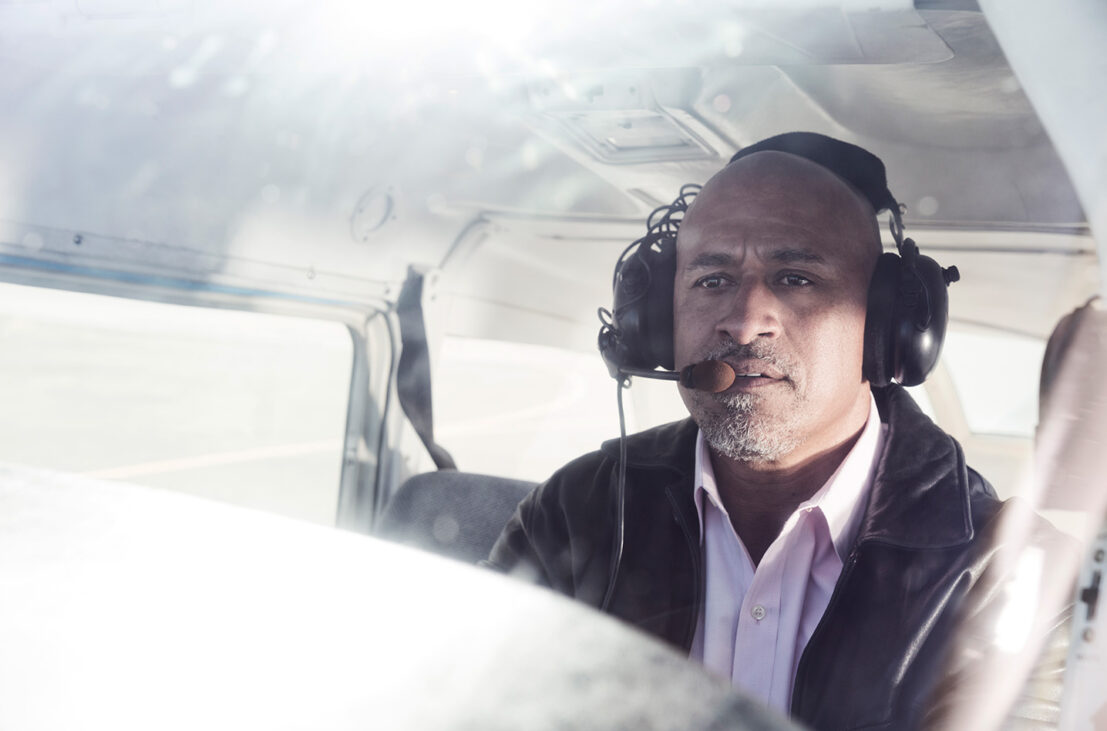
June 26, 2023
NBAA has been working with the FAA to ensure that pilots who are dealing with medical and mental health issues are able to continue flying, as long as it’s safe to do so.
“In conversations with our members about this, it’s very clear that folks are really struggling with these issues,” said Mark Larsen, NBAA director of safety and flight operations. “They want to feel like they can get help and, and thankfully, we’re in a position to say you can get help and it’s likely not going to be career-ending.”
Larsen said that since the pandemic, NBAA has received many calls and emails from pilots. “Frankly it became undeniable that we needed to be doing something about this,” he said. “It just made it clear that we needed to be actively working in this space. And so that’s why we’ve made it a priority to be doing that.”
The FAA has taken several steps to ease mental health barriers for pilots in the past 12 months, such as recently approving the antidepressant medication Wellbutrin as an agency-approved drug for pilots.
“We suggested that the FAA take a closer look at it,” Larsen said. “This is one that people are asking a lot of questions about on pilot forums, as they’re having good results with it.
“It’s progress, right?” Larsen added. “If we can do it safely, why would we keep these folks on the ground?”
The FAA also said it would stop requiring pilots who are on the approved antidepressants to undergo annual neurocognitive follow-up exams.
“It used to be that you had to do an initial neurocognitive assessment and then you would have to go repeat that assessment annually as long as you were on the antidepressant,” Larsen said, adding those tests are expensive, often $3,000 to $4,000.
“That’s a lot of money adding up. So that got us thinking: ‘How many of these neurocognitive follow-up exams are telling the patient and the FAA something that they didn’t find out the first time?’” The FAA reviewed that requirement and decided to drop it in late 2022, Larsen said.
If government regulators put up too many barriers for pilots wrestling with medical and mental health issues, Larsen said, it can backfire. He noted a Journal of Occupational and Environmental Medicine study last year found that 56.1% of pilots reported avoiding health care for fear of being grounded.
“There are some medical and mental health conditions that warrant a further look by the FAA,” Larsen said. “But by the same token, when pilots are aware of the kind of things that they’re up against in order to get treatment, we’re seeing a lot of hesitancy to then pursue treatment.”
Another recent improvement is allowing aviation medical examiners, who medically certify pilots, to upload supporting documentation directly to the FAA, rather than mailing it to the agency’s office in Oklahoma City, OK, where it would typically take a considerable number of days before medical experts would review it.
“So, they’re making progress broadly in their ability to speed up the timelines,” Larsen said, adding that NBAA has encouraged the FAA to continue to monitor that and improve response timelines.
FAA Federal Air Surgeon Dr. Susan Northrup has said the agency is working to reduce mental health barriers, and Larsen credited the agency with evolving on the issue.
Dr. Quay Snyder, president, CEO and co-founder of Aviation Medicine Advisory Service, who serves on the NBAA Safety Committee, said Northrup “has demonstrated a full commitment to recognizing mental wellness as a critical element of aviation safety and optimizing performance.
“Examples include the FAA hiring more psychiatrists and neuropsychologists on their HQ staff to shorten the review times of medical certificate holders’ mental health conditions, adding an additional medication as acceptable to the FAA for certification and considering others.”


 International Business Aviation Council Ltd.
International Business Aviation Council Ltd.